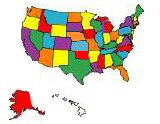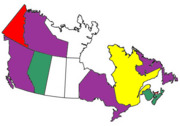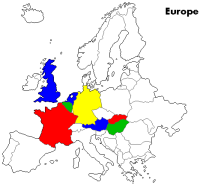Back to College . . .
The Electoral College, that is.
or they didn’t tell me there would be math on the test.
Several people commented on Facebook about yesterday’s dryer repair. Our friend Chris Yust suggest that I just buy a new dryer.
Well, as long as I can fix the old one for a $2.65 fuse and 3 hours of work, I figure I’m making $333/hr for my time, since a new one costs around $1000.00. And it gives me something to blog about.
Our friend Donna Huffer suggested we just go to the laundromat and be done in an hour and a half.
First off, I’m pretty sure Jan would get rid of me before she would get rid of her washer/dryer. She delights in throwing a load in, getting it started, and 5 minutes later she’s back on the sofa with her Kindle, 40” TV, and the computer.
Plus those times we have gone the laundromat, it’s usually 3 or 4 hours, not one and a half. I guess maybe if you go at 3am, but not any time we’ve been.
Jan and I headed out about 1pm to have the Turkey & Dressing/Fried Chicken Lunch Buffet. Just as delicious as usual. If we have one complaint it’s that they don’t have mashed potatoes enough. If you have gravy on the menu, today’s Turkey & Dressing, Chicken Fried Chicken, Chicken Fried Steak, etc., there should be mashed potatoes.
Just sayin’
When we got back a little after 2, I took a nap for a couple of hours since I’ll be on a gate tonight, 6:30pm to 6:30am. So back to work.
Now to the Electoral College:
Like in 2000, in 2016 one candidate won the the popular vote and another candidate won the Electoral vote. And the losing side now wants to eliminate the Electoral College. And you’ve got to figure if the results were flipped, so would be the protesting.
First a little history. George W. Bush and Donald Trump are not the only two Presidents to lose the popular vote, but win the Electoral Vote and the Presidency. And believe it or not, Bush and Trump aren’t even the most controversial.
The 1824 election of John Quincy Adams was the first one. And he didn’t win the popular vote OR the Electoral Vote. Andrew Jackson received the most popular votes AND the most Electoral votes. So how did he lose?
Like this past election, there were four candidates in the running, but in 1824 ALL were from the same party – The Democratic-Republican party.
Betcha didn’t see that one coming.
And although Andrew Jackson had the most over-all votes, with only 99 Electoral votes, he did not have the minimum required votes, 131, to win the Presidency. So the election was thrown into the U.S. House of Representatives, who then selected Adams.
Feeling he had been royally dissed, Jackson stomped off and started his own party, the Democratic Party. Yeah, that one, making it the world’s oldest active party. And under the Democratic Party banner, Jackson was elected President four years later in 1828.
The election of Rutherford B. Hayes in 1876 was even more controversial. Samuel Tilden won the popular vote and had the majority of Electoral votes, 184 to 165. But 20 electors from 4 states, Florida, Louisiana, South Carolina, and Oregon, were in dispute.
This led to the Compromise of 1877, in which the Democrats (Tilden) let the 20 votes go to Hayes, in return for the removal of all Federal troops from the South, thus ending Reconstruction.
The election of Benjamin Harrison in 1888 was relatively calm by comparison. Grover Cleveland, a Democrat and the incumbent President, was running against Harrison, the Republican, with the main fight being over tariffs. Harrison wanted high tariffs, supported by industrialists and factory workers, while Cleveland wanted lower tariffs, supported by consumers. High tariffs won .
Harrison won the Electoral vote while Cleveland won the popular vote, but by less than 1%. Pretty like the 2016 election.
History lesson over, let’s talk about the why?
Why do we have an Electoral College?
The really basic answer is that we have an EC for the same reason that we have a two body legislature, i.e. the Senate and the House of Representatives.
Many people think of the US as a democracy. But we’re actually a Representative Republic, or a Federal Republic. We elect representatives to then represent us in the law-making bodies.
Pure democracy, also sometimes called ‘mob rule’, is where everyone votes on everything, and the most votes win. Not always good if you’re in the minority. And so the Founding fathers were worried about the larger, more populous states controlling things to the detriment of the smaller, less populous states.
So we have the House of Representatives, based on population, and the Senate, where each State has two votes. And all laws have to work their way through both Houses, thus giving the smaller states something of a veto on any legislation.
And we have the Electoral College for the same reason. Take a look at this map.
The blue patches contain 50% of the US population. Think everyone in all the gray areas are going to be happy about their vote being essentially meaningless?
On a state basis, four states, New York, California, Florida, and Texas, contain more than 50% of the voting age population. So just campaign in the 10 most populous state to be safe, and forget about the rest.
And here is a map of the 2016 vote by county, with Republicans in red and the Democrats in blue. Note the similarities with the previous map.
Now to the call for the elimination of the Electoral College. It’s almost certainly not going to happen, at least any time soon.
Since the EC is part of the Constitution, and not just a law, to drop the EC would require a Constitutional Amendment. And that would require approval by 2/3 of both the House and the Senate, and approval by 3/4 of the State Legislatures, i.e 38 states.
So if 13 states say no, the Amendment fails. And since 15 states, ND, UT, NV, NM, SD, MT, WY, NH, WV, VT, DE, RI, ME, NB, AK, all have 5 or less Electoral Votes, they’re probably not going to want to give up their power. And some larger states may not go for it just on principle.
So don’t hold your breath.
And just to throw gasoline on the fire, it’s possible Hillary Clinton did not win the popular vote. And we’ll probably never really know for sure.
Remember the cry, “Count Every Vote”? Well, EVERY vote is almost never counted.
According to the New York Times, there are probably about 7 million uncounted votes in this election. And many almost certainly won’t be counted.
Why? Because they won’t make any difference. If the uncounted votes (usually absentee and provisional ballots) don’t exceed the vote total differences between the two candidates, then many states stop counting to save time and money.
For example, if one candidate leads the other by 300,000 votes, and there are 100,000 absentee/provisional ballots left, why count them. They won’t make any difference.
Right now Hillary Clinton leads the popular vote by 1/2 of 1%, about 630,000 votes. So 7 million votes might increase Hillary Clinton’s lead, or put Donald Trump in the lead.
But it would just be for bragging rights.
At this point what difference does it make?
Thought for the Day:
“The man who does not read has no advantage over the man who cannot read.” ― Mark Twain
asdfadf










